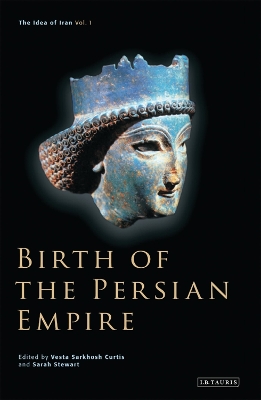Idea of Iran
2 total works
v. 1
Of the great ancient civilizations, that of Persia is the least known and the most enigmatic. This book explores the formation of the first Persian Empire under the Achaemenid Persians. It brings together a multi-disciplinary view of ancient Iran in the first millennium BC and concentrates on the art, archaeology, history and religion of a geographical area far beyond the present borders of modern Iran in the period beginning just before the formation of the Persian empire in the middle of the 6th century up to its collapse following conquest by Alexander the Great in the late 4th century BC. Eminent scholars here give a critical approach to some of the traditional interpretations and discuss topics which help the reader towards a better understanding of the formation of the Persian empire. This is the first volume in the "Idea of Iran" series which will be a four-volume collection encompassing the history of that country.
v. 4
This final volume in the successful series "The Idea of Iran" addresses the astonishing impact made by Islam during and after the Arab conquest of Iran in the middle of the seventh century. As the Sasanian dynasty crumbled before the invaders' triumphant onslaught, its state religion of Zoroastrianism was unceremoniously dismantled to make way for the new faith of the victorious desert warriors. Yet why, if Iran jettisoned its indigenous religion, did it still manage to retain its Persian language and distinctive Iranian identity once Muslim governance took hold?These, and other intriguing questions, are addressed by the book, which includes distinguished contributions from world-renowned scholars such as Hugh Kennedy, Edmund Bosworth, Robert Hillenbrand and Ehsan Yarshater. Discussing a large variety of subjects which covers the whole spectrum of life in early Islamic Iran, the volume offers one of the most ambitious perspectives on Persian religion, society and culture to be published to date. It will be consulted by all students of Iranian history, and will be regarded as essential reading for scholars of Islam, the Middle East and medieval religion alike.

